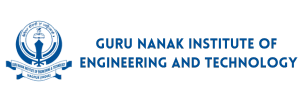NAAC CRITERIA
- CRITERIA-1
- CRITERIA-2
- CRITERIA-3
- CRITERIA-4
- CRITERIA-5
- CRITERIA-6
- CRITERIA-7
- Self Study Report
- Extended Profile
- Quick Links
- Data Verification and Validation (DVV)
CRITERIA-1 : CURRICULAR ASPECTS
1.1 Curricular Planning and Implementation.
1.1.1 The Institution ensures effective curriculum planning and delivery through a well-planned and documented process including Academic calendar and conduct of continuous internal Assessment
- Departmental Academic Calender
- Course File
- Departmental Academic Calender
- List of ELectives
- Policy for Weak and Bright Student with Sample
- RTMNU ACADEMIC CALENDER
- Student Counseling
- Subject Allocation
- Time Table
- Vision Mission of the Institute & Departments
- Course File
- 1.1 Curriculum Design and Development
- 1.1-Curricular-Planning-and-Implementation
- Curricular Design and Development Policy
1.2 Academic Flexibility.
1.2.1 Number of Certificate-Value Added Courses Offered
- Certificates 2022-23
- Certificates 2021-22
- Certificates 2020-21
- Certificates 2019-20
- Certificates 2018-19
1.2.1 Institutional Programme Brochure-Notice-Certificate
- ADD ON COURSES 2022-23
- ADD ON COURSES 2018-19
- ADD ON COURSES 2019-20
- ADD ON COURSES 2020-21
- ADD ON COURSES 2021-22
1.2.1 List of Students & Attendance
1.3 Curriculum Enrichment.
1.3.1 Institution integrates crosscutting issues relevant to Professional Ethics, Gender, Human Values, Environment and Sustainability in transacting the Curriculum
1.3.2 Percentage of students undertaking project work/field work/ internships (Data for the latest completed academic year)
1.4 Feedback System.
1.4.1 Institution obtains feedback on the academic performance and ambience of the institution from various stakeholders, such as Students, Teachers, Employers, Alumni etc. and action taken report on the feedback is made available on institutional website
The institution obtains feedback on the academic performance and ambience of the institution from various stakeholders, such as Students, Teachers, Employers, Alumni etc. and an action taken report on the feedback is made available on the institutional website.
CRITERIA-2 : TEACHING, LEARNING AND EVALUATION
2.1 : Student Enrolment and Profile
2.1.1 Number of Seats filled year wise during last five years (Only first year admissions to be considered.)
- Admission Cell
- EOA Report
- EOA Report 2018-19
- EOA Report 2019-20
- EOA Report 2020-21
- EOA Report 2021-22
- EOA Report 2022-23
2.1.2 Percentage of Seats filled against reserved categories (SC,ST OBC etc.) as per application reservation policy for the first year admission during the last five years.
2.2 : Catering to Student Diversity
2.2.1 Student Full-time Teachers Ratio (Data for the latest completed academic year.)
2.3 : Teaching- Learning Process
2.3.1 Student-centric methods such as experiential learning, participative learning and problem-solving methodologies are used for enhancing learning experiences and teachers use ICT-enabled tools including online resources for effective teaching and learning process.
2.4 : Teacher Profile and Quality
2.4.1 Percentage of full-time teachers against sanctioned posts during the last five years.
2.4.2 Percentage of full-time teachers with NET/SET/SLET/Ph.D/ during the last five years.
2.5. Evaluation Process and Reforms.
2.5.1 Mechanism of internal/External assessment is transparent and the grievance redressal system is time-bound and efficient.
2.6 : Student Performance and Learning Outcomes
2.6.1 Programme outcomes (Pos) and course outcomes (Cos) for all programmes offered by the institution are stated and displayed on website.
- All COs
- PO, PSO,PEO - ASH
- VISION MISSION PEO PO PSO - CSE
- VISION MISSION PEO PO PSO - ETC
- VISION MISSION PEO-PSO-PO EE
- Final cos pos photos
2.6.2 Attainment of Pos and Cos are evaluated.
2.6.3 Pass percentage of students during last five years.
- Attendence6 (2)_merged_compressed
- Last 5 year results
- Result Analysis 8 sem all branch
- MTECH S23 PEPS
- MTECH S22 PEPS
- MTECH S20 PEPS
- MTECH S20 CSE
- MTECH S19 PEPS
- MBA S22 4SEM
- MBA S21 4SEM
- MBA S19 4SEM
- IT BE 20
- IT BE 19
- ETC S23 8SEM
- ETC S22 8 SEM
- EE S 23 8 sem
- EE S 22 8 sem
- EE S 20 8 sem
- cse-s-23 8th sem
- cse-s-22 8th sem
- cse-s-20 8th sem
- cse-s-19 8th sem
Criteria-3 Research, Innovations and Extension
3.1 Resource Mobilization for Research
3.1.1 Grants received from Government and non-governmental agencies for research projects, endowments in the institution during the last five years
3.2 Innovation Ecosystem
3.3 Research Publication and Awards
3.4 Extension Activities
3.4.3:Number of extension and outreached Programmes conducted by the institution through NSS/ NCC/ Red Cross/ YRC etc., (including the programmes such as Swachh Bharat, AIDS awareness, Gender issues etc. and/or those organised in collaboration with industry, community and NGOs
CRITERIA-4 : INFRASTRUCTURE AND LEARNING RESOURCES
4.1 Physical Facilities
4.2 Library as a learning Resource
4.3 IT Infrastructure
4.4 Maintenance of Campus Infrastructure
CRITERIA-5 : STUDENT SUPPORT AND PROGRESSION
5.1 Student Support
5.1.1 Percentage of students benefited by scholarships and freeships provided by the institution, government and non-government bodies, industries, individuals, philanthropists during the last five years
- 5.1.1 list of students benefitted by scholarship 2022-23
- 5.1.1 list of students benefitted by scholarship 2021-22
- 5.1.1 list of students benefitted by scholarship 2020-21
- 5.1.1 list of students benefitted by scholarship 2019-20
- 5.1.1 list of students benefitted by scholarship 2018-19
- 5.1.1 Relevant Documents
5.1.2 Following capacity development and skills enhancement activities are organised for improving students’ capability
1. Soft skills
2. Language and communication skills
3. Life skills (Yoga, physical fitness, health and hygiene, self-employment and entrepreneurial skills)
4. Awareness of trends in technology
5.1.3 Percentage of students benefitted by guidance for competitive examinations and career counselling offered by the institution during the last five years
5.1.4 The Institution has a transparent mechanism for timely redressal of student grievances including sexual harassment and ragging cases
5.2: Student Progression
5.2.1 Percentage of placement of outgoing students and students progressing to higher education during the last five years
- Higher Study 2022-23
- Higher Study 2021-22
- Higher Study 2020-21
- Higher Study 2019-20
- Higher Study 2018-19
- Placements
- 5.2.1List of students progressing for higher education
- 5.2.1 List of Placements
5.2.2 Percentage of students qualifying in state/national/ international level examinations during the last five years
(eg: IIT/JAM/NET/SLET/GATE/GMAT/GPAT/CLAT/CAT/ GRE/TOEFL/ IELTS/Civil Services/State government examinations etc.)
5.3: Student Participation and Activities
5.3.1 Number of awards/medals for outstanding performance in sports/cultural activities at University/state/national/ international level during the last five years
5.3.2 Average number of sports and cultural programs in which students of the Institution participated during last five years
(organised by the institution/other institutions)
5.4: Alumni Engagement
CRITERIA-6 : GOVERNANCE, LEADERSHIP AND MANAGEMENT
6.1: Institutional Vision and Leadership
6.2: Strategy Development and Deployment
6.2.1 The institutional perspective plan is effectively deployed and functioning of the institutional bodies is effective and efficient as visible from policies, administrative setup, appointment, service rules, and procedures, etc
6.2.2 Institution implements e-governance in its operations
- 6.2.2 Annual e-governance report approved by the Governing Council Board of Management Syndicate Policy document on e-governance
- 6.2.2 Institutional expenditure statements for the budget heads of e-governance implementation ERP Document
- 6.2.2 Screen shots of user interfaces of each module reflecting the name of the HEI
6.3: Faculty Empowerment Strategies
6.3.1: The institution has performance appraisal system, effective welfare measures for teaching and non-teaching staff and avenues for career development/progression
6.3.2: Percentage of teachers provided with financial support to attend conferences/workshops and towards membership fee of professional bodies during the last five years
- 6.3.2 financial lettr certificate vouchers merged pdf_compressed
- 6.3.2 Total no. of staff provided financial support
- 6.3.2 Financial letter certificate vouchers merged
- 6.3.2 financial support letters,certificates&vouchers pdf
- 6.3.2 list of staff provided financial support
- 6.3.2 Policy doccuments
- 6.3.2 R&D Policy
- 6.3.2 Policy document on providing financial support to teachers
- 6.3.2 Copy of letters indicating financial assistance to teachers and list of teachers receiving financial support year-wise under each head.
6.3.3 Number of professional development / administrative training programs organised by the institution for teaching and non-teaching staff during the year.
- 6.3.3 Summery
- Faculty Participation Certificates
- Teaching and Non Teaching Programs Session 2022-23
- Teaching and Non Teaching Programs Session 2021-22
- Teaching and Non Teaching Programs Session 2020-21
- Teaching and Non Teaching Programs Session 2019-20
- Teaching and Non Teaching Programs Session 2018-19
- 6.3.3 Annual reports highlighting the programmes undertaken by the teachers
- 6.3.3 Copy of the certificates of the program attended by teachers.
- 6.3.3 Refresher course Faculty Orientation or other programmes as per UGC AICTE stipulated periods, as participated by teachers year-wise.
6.4: Financial Management and Resource Mobilization
6.4.1 Institution has strategies for mobilization and optimal utilization of resources and funds from various sources (government/ nongovernment organizations) and it conducts financial audits regularly (internal and external)
6.5: Internal Quality Assurance System
6.5.1 Internal Quality Assurance Cell (IQAC) has contributed significantly for institutionalizing the quality assurance strategies and processes. It reviews teaching learning process, structures & methodologies of operations and learning outcomes at periodic intervals and records the incremental improvement in various activities
6.5.2 Quality assurance initiatives of the institution include:
- 6.5.2 A MOM 5 years
- 6.5.2.B list of collaborative initiative
- 6.5.2.C Participation in NIRF and AAA
- 6.5.2.D NAAC& ISO Certification
- 6.5.2 List of Collaborative quality initiatives with other institution(s) along with brochures and geo-tagged photos with caption and date
- 6.5.2 NIRF report, AAA report and details on follow up actions
- 6.5.2 Quality audit reports certificate as applicable and valid for the assessment period.
CRITERIA-7 : Institutional Values and Best Practices
7.1: Institutional Values and Social Responsibilities
7.1.1 Institution has initiated the Gender Audit and measures for the promotion of gender equity during the last five years. Describe the gender equity & sensitization in curricular and co-curricular activities, facilities for women on campus etc., within 500 words
7.1.2 The Institution has facilities and initiatives for
7.1.3 Quality audits on environment and energy regularly undertaken by the Institution. The institutional environment and energy initiatives are confirmed through the following
7.1.4 Describe the Institutional efforts/initiatives in providing an inclusive environment i.e., tolerance and harmony towards cultural, regional, linguistic, communal socioeconomic and Sensitization of students and employees to the constitutional obligations: values, rights, duties and responsibilities of citizens
7.2 Best Practices
7.3: Institutional Distinctiveness
SELF STUDY REPORT
Extended Profile
DATA VERIFICATION AND VALIDATION (DVV)
CRITERIA-1
CRITERIA-2
CRITERIA-3
CRITERIA-4
CRITERIA-5
CRITERIA-6
- 6.5.2.DVV Clarification
- 6.5.2.B list of collaborative initiative
- 6.5.2.C Participation in NIRF and AAA
- 6.5.2.D NAAC& ISO Certification
- IQAC MOM 2022-23
- IQAC MOM 2021-22
- IQAC MOM 2020-21
- IQAC MOM 2019-20
- IQAC MOM 2018-19
6.3.3. Percentage of teaching and non-teaching staff participating in Faculty Development Programmes (FDP), Management Development Programmes (MDPs) professional development /administrative training programs during the last five years





